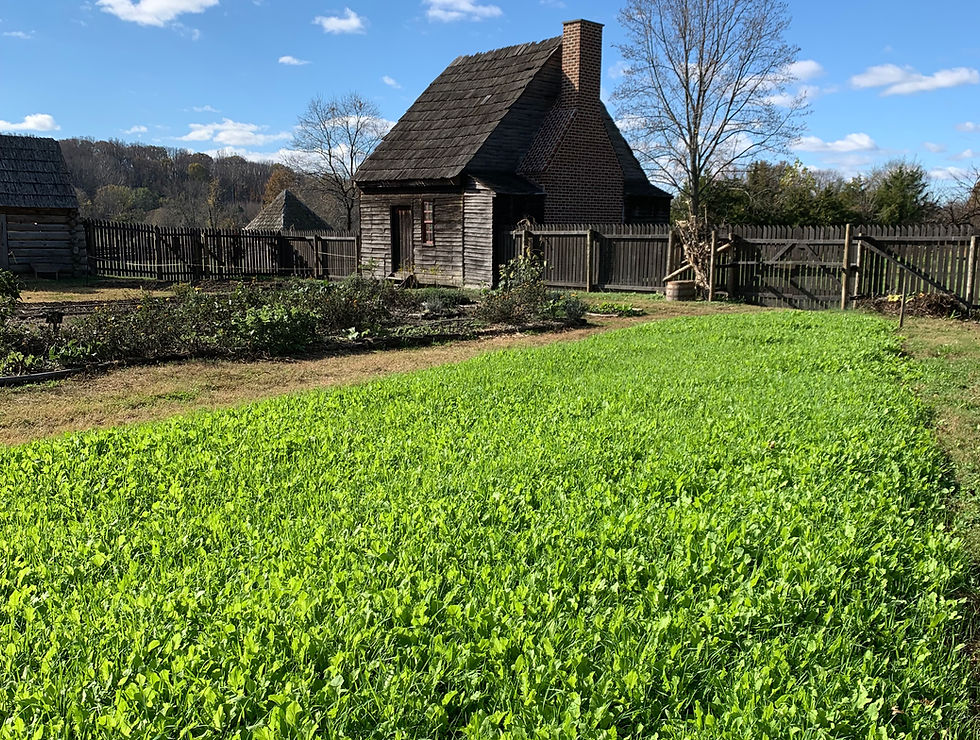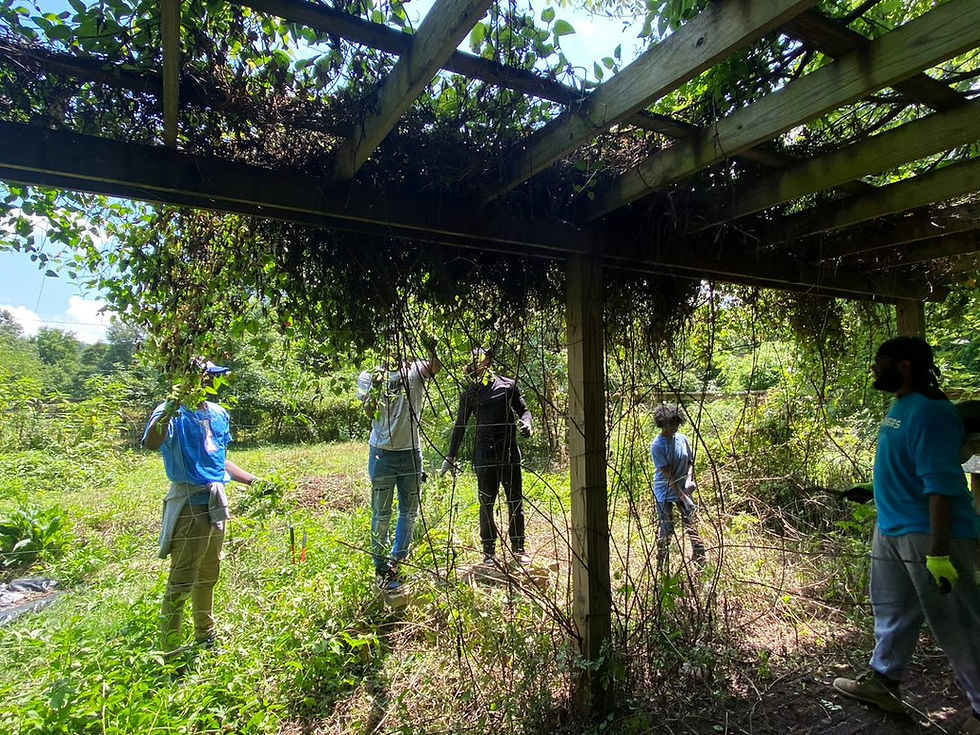Field Notes: Volume 16, Number 1
- Accokeek Foundation

- May 6, 2011
- 3 min read

This Week’s Harvest List
Green Garlic
Radishes
Head Lettuce
Lettuce Mix
Pea Shoots
Parsley or Garlic Chives
We ask that our SHAREholders please keep in mind that spring harvests are often “light.” This is a result of small growing space and the earliness of the season.
As the season progresses, summer and fall should bring with them heavier boxes.
Welcome to the 2011 Ecosystem Farm CSA season!
This week marks the season’s first SHARE pick-ups, as we send out fresh harvests of lettuces, green garlic, pea shoots, and more. As the spring rains continue, planting crops has remained a challenge. Indeed, the wet weather has made farmers all over the region desperate to find the perfect planting window in between the rainfall. But, while the Ecosystem Farm staff is feeling pressured to get things into the ground, evidence of successful growth elsewhere pushes them forward. A patch of blushing strawberries spotted in the field, summer squash and tomatoes growing well in the greenhouse: each a signal that summer is not so far away.
While spring growth is a positive thing, it can also be a negative. Along with the arrival of Zebra Swallowtails and flocks of Bobolinks, warmer weather has heralded the arrival of farm pests. Creeping Charlie has crept far too close for comfort, and Small Cabbage Whites have been found fluttering in and around beds of brassicas (to be combated with badminton rackets, of course).
But even curses are sometimes blessings in disguise. The puddles that have remained wet for much longer than they might normally have will soon support tadpole and frog populations. And the challenges that might be difficult to deal with will nevertheless encourage our farmers to learn and grow along with their crops.
Below, photos from this week at the Ecosystem Farm. Click images to enlarge, or view them on Flickr.
This Week’s Recipe: Radish Salad with Buttermilk Dressing
Recipe from Real Simple
Ingredients:
4 ounces country bread, cut into 3/4-inch pieces (about 2 cups)
1 tablespoon olive oil
kosher salt and black pepper
1/2 cup buttermilk
3 tablespoons mayonnaise
2 tablespoons chopped fresh parsley
1 clove garlic, finely chopped
1 head lettuce, torn (about 6 cups)
4 radishes, thinly sliced
1 shallot, thinly sliced
Directions:
Heat oven to 400 degrees F. On a rimmed baking sheet, toss the bread with the oil and 1/4 teaspoon each salt and pepper. Bake, tossing once, until golden, 7 to 9 minutes. Let cool.
In a large bowl, whisk together the buttermilk, mayonnaise, parsley, garlic, 1/2 teaspoon salt, and 1/4 teaspoon pepper. Add the lettuce, radishes, shallots, and croutons and toss to coat.
Upcoming Events
Sustainable Table: Tuesday, May 10, 2011: 6 to 7:30 p.m., Education Center, Free: It’s one thing to purchase produce that’s in season, and quite another to cook it. Sustainable Table is a monthly cooking course that demonstrates how to use in-season fruits, vegetables, and herbs to create healthful, wholesome, and delicious meals. Each class will spotlight one well-loved fruit or vegetable standard and one unusual item. Participants will receive printed recipes to take home.
Ecosystem Farm Volunteer Day: Recurring: Second and Fourth Thursdays, 1 to 4 p.m., Ecosystem Farm: Volunteers will join the farm crew in their work and, in the process, learn about organic and sustainable agricultural practices. Please wear appropriate clothing, including long pants, sturdy shoes or boots, sunscreen and/or a hat. Bring snacks and a refillable water bottle. Work will vary depending on the weather.
Children’s Day: Saturday, May 14, 2011: 11 to 4 p.m., National Colonial Farm, $5 per child: The theme of this Saturday’s annual Children’s Day is “How Things Were Made: Colonial Apprentice.” Children will learn how things were made in colonial times by getting hands-on experience in several skills. Scheduled hands-on workshops include woodworking, blacksmithing, spinning, knitting, and cross-stitching. Additional activities include butter making, wool washing and carding, colonial cooking, and hill making. Collect keepsakes along the way! Guests are encouraged to bring the whole family and a picnic lunch to enjoy a day at the farm.







